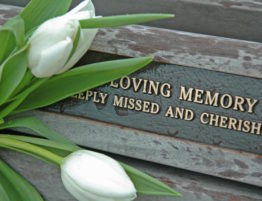About Wrongful Death Lawsuits
Legal actions for wrongful death can be very complex, especially when the harmful acts of several parties contributed to an individual’s death. Some parties may settle the matter before the case goes to trial; others may see it all the way to a verdict. No matter who the defendant is, the amount and type of financial recovery the plaintiff can make depend on the law of the state in which the case takes place. Contact an attorney to discuss your legal rights.
A Brief History of Wrongful Death Law
In the distant past, there was no legal right to recover for a loved one’s wrongful death. Once a person died, the rights surrounding the cause of the death died, too. If a person was injured and filed a lawsuit on his or her own behalf, and that person died before the case concluded, the case simply was dismissed.
Seeing the unfairness of this system, legislatures passed laws called wrongful death statutes. Each state passed its own law, so the rules differ depending on the state. This is why it is so important to have the help of a lawyer who knows the law in your state.
How Damages Are Calculated in Wrongful Death Lawsuits
Although states have differing approaches to awarding monetary damages in wrongful death lawsuits, most of them share some principles in common.
The death must have been caused by the wrongful actions of another. Someone must take legal action in response. This person is typically a surviving spouse, parent or child of the person who has passed away. Aunts and uncles, cousins and people who act as parents (but are not biological or adoptive parents) are usually not eligible to recover under a wrongful death statute.
Courts award damages for wrongful death based on varying theories, depending on their jurisdiction. Theories of recovery in wrongful death lawsuits include pecuniary loss; this means that the defendant must compensate the plaintiff for the money that the deceased would have provided had he or she lived. The amount includes income, pension distributions and even services such as taking care of the children. Another theory of recovery permits the plaintiff to collect compensation for the loss of love, companionship and guidance of the deceased. This is especially relevant for children who have lost a parent. Some states allow punitive damages against the defendant as well.
Speak with a Lawyer
If you believe that you have a wrongful death claim based on the loss of your loved one, contact an experienced attorney today. The amount of time you have to file a legal action, and the type of damages you should ask the court to award you and your family, will vary depending on the specific laws of your state. A knowledgeable lawyer can help you sort out your options.





